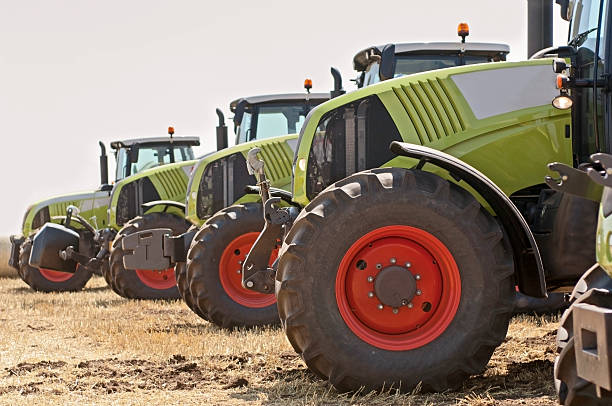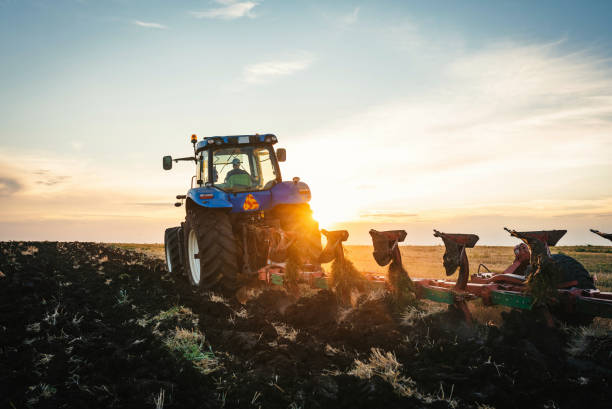For business owners, agricultural managers, and property operators seeking reliable farming tools, choosing the right purchasing method is a strategic decision that can significantly affect both short-term budgets and long-term operational efficiency. With growing demand for agriculture equipment in Madison, AL the question often arises: is it more cost-effective to purchase equipment through auctions, or is buying from a certified dealer ultimately the better value?
This consideration becomes increasingly important in competitive markets where timing, reliability, and support services are essential. While auctions have long been associated with discounted prices, dealers offer a different kind of value support, warranties, service, and consultation. The answer to which path is “cheaper” depends not only on initial purchase price but also on total cost of ownership, risk tolerance, and operational requirements.

The Perceived Cost Advantage of Auctions
It’s no secret that farm equipment auctions, whether held in person or online, are designed to attract buyers with the prospect of lower prices. Sellers often include private owners, retiring farmers, large agricultural businesses liquidating assets, or financial institutions offloading repossessed equipment. These scenarios frequently result in machinery being offered at prices well below retail value.
Auction participants in Madison, AL often turn to these events for tractors, implements, harvesters, and tillage tools at reduced rates. Online platforms such as AuctionTime and Proxibid, along with local events promoted by regional auctioneers, provide access to a broad range of equipment. However, while these auctions may initially seem to present a clear financial advantage, buyers must factor in additional variables like buyer’s premiums, transportation costs, and the risk of acquiring machinery that hasn’t undergone professional inspection.
For experienced buyers who are well-versed in machinery condition, maintenance history, and fair market value, auctions can indeed offer substantial savings. But for others, especially those unfamiliar with the specific model or without the resources to make post-purchase repairs, auction buying carries significant risk.
The Value Proposition of Buying from a Dealer
On the other hand, purchasing from an established dealer like H&R Agri-Power brings a level of assurance that many buyers find worthwhile. Equipment sold by reputable dealers typically comes with service history, inspection certifications, and in many cases, warranties or satisfaction guarantees. These protections can substantially reduce the likelihood of unplanned downtime or repair costs after purchase.
Furthermore, dealers provide pre-sale consultations, helping buyers select the best equipment based on acreage, crop type, terrain, and operating budget. This personalized guidance is especially beneficial for commercial property managers or growing farming operations who need long-term reliability rather than just a one-time bargain.
H&R Agri-Power, for example, not only offers a wide selection of new and pre-owned tractors and implements but also provides support services including equipment delivery, operator training, and on-site servicing. These features allow buyers to incorporate machinery seamlessly into their operations with minimal disruption.
Evaluating Total Cost of Ownership
To determine whether auctions are truly cheaper than dealer purchases, it’s important to compare total cost of ownership (TCO). TCO includes more than the initial price tag it accounts for factors like:
-
Pre-existing wear or hidden damage
-
Maintenance and repair costs
-
Access to service or parts
-
Transportation and delivery
-
Warranty coverage
-
Financing terms
An auctioned tractor that sells for 20% less than dealer price might require $5,000 in immediate repairs and have no warranty protection. By contrast, a unit purchased from H&R Agri-Power could be slightly more expensive upfront but come fully serviced, supported by a limited warranty, and delivered ready for use. In such cases, the long-term savings often favor the dealer-purchased option, particularly when reliability and serviceability are priorities.

Understanding the Risk Tolerance Factor
Another consideration is a buyer’s risk tolerance. Seasoned operators who have owned similar machines, know what to look for, and have access to in-house mechanics may feel confident buying at auction, even without a warranty. However, for property managers or first-time buyers unfamiliar with evaluating engine wear, hydraulic responsiveness, or electronic diagnostics, auctions can pose significant risk.
Dealers eliminate much of this uncertainty by ensuring their inventory is inspected and performance-tested before sale. H&R Agri-Power, for instance, services and documents each used machine they offer. This attention to detail protects buyers from inheriting mechanical issues that could disrupt operations or inflate service costs.
Time and Convenience as a Value Factor
In business operations, time is a valuable asset. Auctions require research, registration, bidding, scheduling inspections, arranging pickup, and sometimes financing through a third party. The process can take days or weeks depending on the auction format and item location.
In contrast, a dealer offers streamlined transactions, financing assistance, and instant delivery timelines. H&R Agri-Power also provides demonstrations, trade-in evaluations, and configuration services all of which reduce downtime and accelerate deployment of newly acquired equipment.
For businesses managing multiple properties or growing operations, the ability to acquire fully serviced, ready-to-operate equipment without logistical complications often outweighs the slight savings auctions might offer.
Market Conditions and Availability
It’s also important to consider market conditions. During peak seasons or equipment shortages, auction prices can be driven up by bidding competition, occasionally exceeding retail value. In such cases, buyers may find more stable pricing and better availability through dealerships.
H&R Agri-Power continuously monitors market trends and adjusts their inventory to meet local demand in Madison, AL. Their connections with major manufacturers and experience with trade-in cycles ensure a consistent flow of equipment, even during high-demand periods.

Conclusion
So, is buying at auction cheaper than buying from a dealer? In terms of upfront cost, the answer is often yes. But when total cost of ownership, warranty protection, reliability, and long-term operational efficiency are considered, the answer becomes more nuanced. For risk-tolerant buyers with technical expertise and flexible timelines, auctions can offer value. For those who prioritize service, accountability, and long-term support, purchasing from a trusted dealer like H&R Agri-Power is likely to provide the greater return on investment.
Ultimately, the “cheapest” option depends on the specific goals, capabilities, and expectations of the buyer. With smart planning, both methods can be effective especially when combined with professional guidance and service infrastructure available in Madison’s agricultural community.
FAQs
Do auctions always offer the lowest prices on farm equipment?
Not always. While auctions can provide lower upfront costs, competitive bidding or hidden equipment issues may offset the savings when factoring in repairs or downtime.
Is dealer financing more flexible than auction purchases?
Yes. Dealers like H&R Agri-Power often provide in-house financing or facilitate manufacturer-backed options that auctions do not offer.
Can I get warranty coverage when buying from an auction?
Typically, no. Most auctioned equipment is sold as-is. In contrast, dealers may offer limited warranties or service agreements for used equipment.
How can I be sure a used tractor from an auction is reliable?
Thorough inspection, maintenance records, and equipment history are key. If the unit was previously serviced by H&R Agri-Power, their team may be able to provide insights on its condition.
What are the risks of buying agricultural equipment at auction?
Risks include lack of warranty, possible hidden mechanical issues, difficulty in securing parts, and added logistical costs for transport or repairs. Dealer purchases usually reduce these uncertainties.






